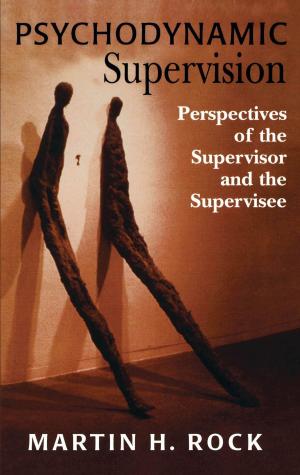Injured Men
Trauma, Healing, and the Masculine Self
Nonfiction, Social & Cultural Studies, Social Science, Gender Studies, Men&, Health & Well Being, Psychology, Psychotherapy, Mental Health| Author: | Ira Brenner | ISBN: | 9780765706928 |
| Publisher: | Jason Aronson, Inc. | Publication: | October 26, 2009 |
| Imprint: | Jason Aronson, Inc. | Language: | English |
| Author: | Ira Brenner |
| ISBN: | 9780765706928 |
| Publisher: | Jason Aronson, Inc. |
| Publication: | October 26, 2009 |
| Imprint: | Jason Aronson, Inc. |
| Language: | English |
Injured Men is a unique casebook of clinical material pertaining to men who have sustained trauma. With the exception of those publications dealing with the military, clinical vignettes of traumatized individuals are overwhelmingly female. By comparison, little has been written about the plight of men. Injured Men begins to fill that void. Richly illustrated with both brief and extensively detailed analytic case reports, Injured Men describes the manifestations of such phenomena as physical and sexual abuse, unresolved grief, genocidal persecution, intergenerational transmission of trauma, and of course, combat. With his perspective on dissociation and dissociative disorders, Brenner also presents a traumatic pathway to the development of a masculine self in those with female bodies. In dealing with the long term effects of trauma, he advocates a pluralistic approach, which he demonstrates in the final chapter of this fascinating volume.
Injured Men is a unique casebook of clinical material pertaining to men who have sustained trauma. With the exception of those publications dealing with the military, clinical vignettes of traumatized individuals are overwhelmingly female. By comparison, little has been written about the plight of men. Injured Men begins to fill that void. Richly illustrated with both brief and extensively detailed analytic case reports, Injured Men describes the manifestations of such phenomena as physical and sexual abuse, unresolved grief, genocidal persecution, intergenerational transmission of trauma, and of course, combat. With his perspective on dissociation and dissociative disorders, Brenner also presents a traumatic pathway to the development of a masculine self in those with female bodies. In dealing with the long term effects of trauma, he advocates a pluralistic approach, which he demonstrates in the final chapter of this fascinating volume.















